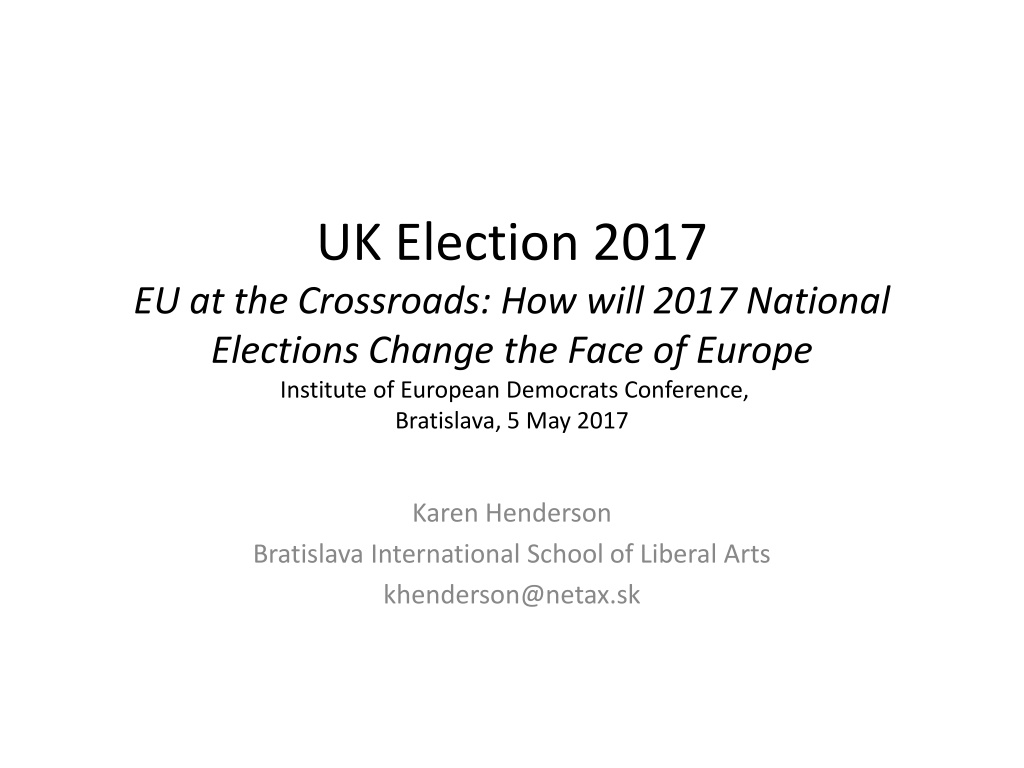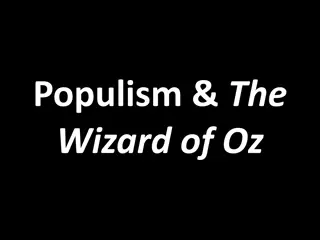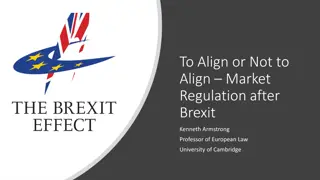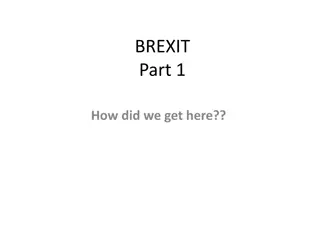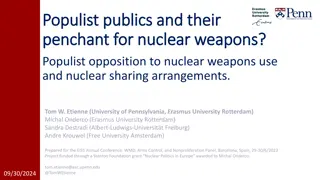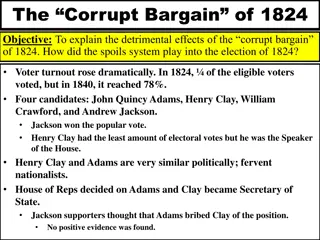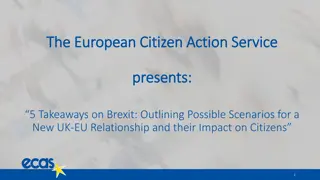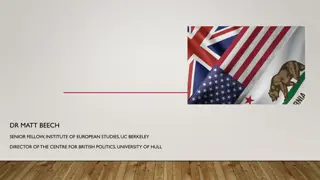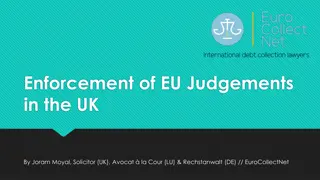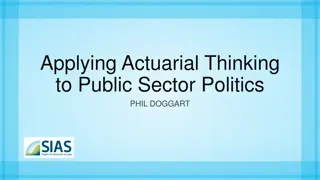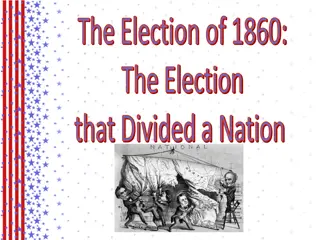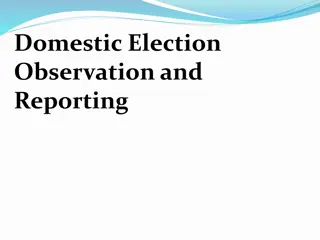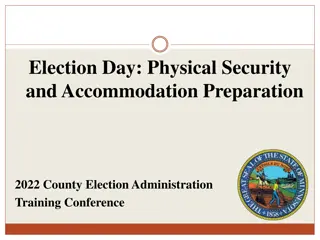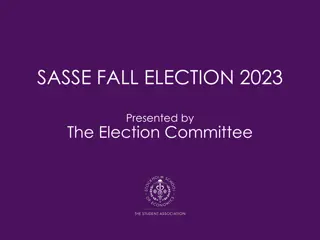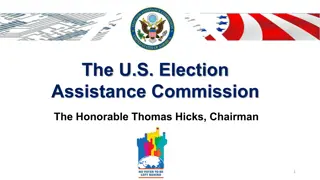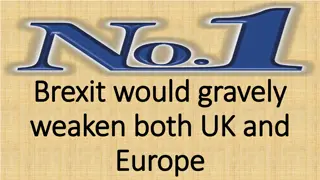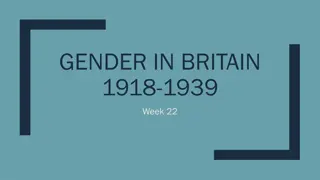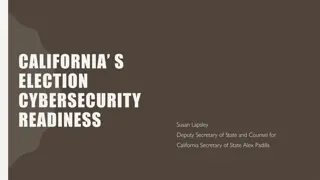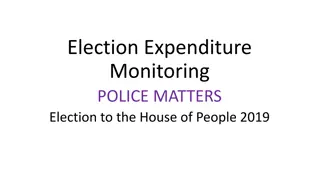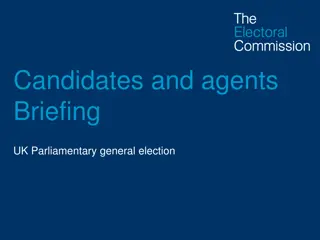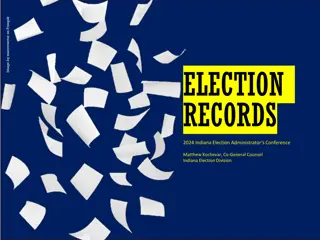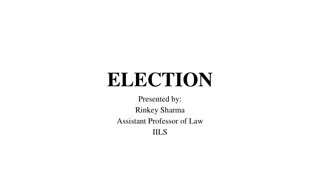Election 2017: Impact on Brexit and Populist Politics in the EU
The 2017 UK election and its connection to Brexit, populist politics in the EU, party stances on Brexit, UK voting system challenges, and the overall implications for Europe. Analyzing reasons for the election, evolving party positions, and the uncertainties surrounding Brexit timelines and outcomes.
Download Presentation

Please find below an Image/Link to download the presentation.
The content on the website is provided AS IS for your information and personal use only. It may not be sold, licensed, or shared on other websites without obtaining consent from the author. Download presentation by click this link. If you encounter any issues during the download, it is possible that the publisher has removed the file from their server.
E N D
Presentation Transcript
UK Election 2017 EU at the Crossroads: How will 2017 National Elections Change the Face of Europe Institute of European Democrats Conference, Bratislava, 5 May 2017 Karen Henderson Bratislava International School of Liberal Arts khenderson@netax.sk
Summary Two reasons why Brexit not relevant to populist politics in EU as a whole 2017 General Election: Why is it happening? Who will win? What does this mean for Brexit? One reason why Brexit and UK are relevant to study of populism in EU
Brexit is a one off event Stronger than most EU states, plus different political culture Brexit was a horrible mistake, and happened in only EU member state without a written constitution
The Hitchcock twist (Tusk) Unethical to call election 3 weeks AFTER triggering Article 50? Exploits window between no going back and real onset of economic problems
Reasons for election May has no popular mandate but is very popular Parliamentary majority small (between 8 and 17) and Labour opposition exceptionally weak The country is coming together but parliament is not but real problem still Conservative Party disunity - May isolated between SEM faction (business) and hard Brexiteer faction Avoid May 2020 election Brexit spring 2019, could be delayed, economy?
Party stances on Brexit Conservative Party: whatever May decides Labour Party: soft Brexit, protect EU citizens unilaterally SNP: no Brexit, independence instead Liberal Democrats: second referendum, no Brexit or soft Brexit Greens: no Brexit, second referendum UKIP: Brexit, Brexit, defenders of Brexit!
UK voting system Percentage of votes and percentage of seats do not correspond Ashcroft seats matter, so where will the UKIP vote go and where will the LibDem vote come from If result not clear by 02.00 CET, probably not clear for 24 hours or longer
UK voting system: % vote vs. % seat Election year Winning party % vote % seat 2015 Conservatives 36.9 50.9 2010 Conservatives had to form coalition 36.1 47.2 2005 Labour 35.2 55.0 2001 Labour 40.7 62.5 1997 Labour 43.2 63.4 1992 Conservatives 41.9 51.6 1987 Conservatives 42.2 57.7 1983 Conservatives 42.4 61.1 1979 Conservatives 43.9 53.4 1974 Oct Labour 39.3 50.2 1974 Feb Labour minority government 37.2 47.4
UK 2015 Election Result Party % vote No. seats 2010 For/vs. Brexit (est) Conservative 36.9 331 307 135/186 Labour 30.4 232 258 10/218 SNP (Scotland) 4.7 56 8 0/56 Liberal Democrat 7.9 8 57 0/8 DUP (N. Ireland) 0.6 8 6 8/0 Sinn Fein (N. Ireland) 0.6 4 5 0/4 Plain Cymru (Wales) 0.6 3 3 0/4 UKIP 12.6 1 0 1/0 SDLP (N. Ireland) 0.3 3 3 0/3 Greens 3.8 1 1 0/1 UUP (N. Ireland) 0.4 2 0 0/2
Unlikely scenario May does not increase her majority Brexit no longer probable 9/1 against Conservatives getting less than 40% of the vote BUT this election will have a lot of tactical voting
Likely scenario May increases majority to at least 100 6/4 odds 45-50% Labour becomes a stronger opposition as election disaster ousts Corbyn
Polls http://britainelects.com/ (majority 118)
Implications for Brexit negotiations May will be easier for EU to negotiate with Will not waver due to pressure on economist or Brexiteer side More likely to compromise than hard Brexiteers But does EU side really want to negotiate ? The 27 do not regard leaving the EU as a legitimate choice
And what does Brexit tell us about populism in the EU? Forget the small extremist parties, look at the governing parties Do not take the battle on to the extremists turf Solve some of the problems that worry their supporters? Nationalism can be a symptom and not a cause
